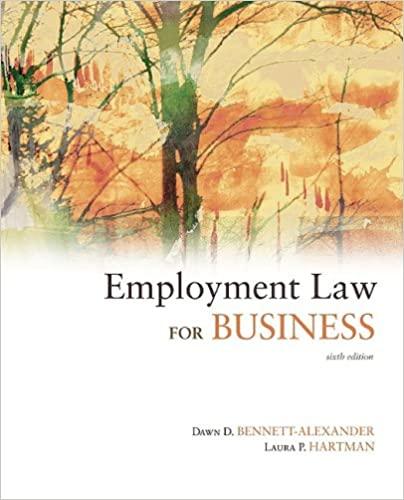Question
Caesar Barber, from the Bronx, New York, weighs 272 pounds. He filed a lawsuit against McDonald's, Kentucky Fried Chicken, Wendy's, and Burger King for contributing
Caesar Barber, from the Bronx, New York, weighs 272 pounds. He filed a lawsuit against McDonald's, Kentucky Fried Chicken, Wendy's, and Burger King for contributing to his weight problem. He has a number of health problems commonly associated with high weight - two heart attacks, diabetes, high blood pressure, and high cholesterol. He claims the fast food chains deceived him with ads that said "100 percent beef" and they created a de facto addiction. The case alleges that McDonald's failed to adequately disclose material facts about its high fat food. "The law of warnings is not designed for the best and brightest of us.... It is aimed at helping people who need to be told not to stand on the top step of a ladder or not to use a hair dryer in the bathtub", says John Banzhaf, a legal activism teacher at George Washington University Law School. All of the restaurants have nutritional information available on request in their restaurants and online. The plaintiff claims that he didn't know how fattening or harmful the food was. The TV and print ads promoted the foods as healthy, economical, tasty, and convenient. Also, it is alleged by plaintiffs that the fast food restaurants could use healthier ways to prepare the food. Hence this lawsuit was filed.
1.How would you rule if this case were brought in your court and you were the presiding judge?
2. Should the fast food restaurants be held liable? If so, what legal theories covered would be applicable?
Step by Step Solution
There are 3 Steps involved in it
Step: 1

Get Instant Access to Expert-Tailored Solutions
See step-by-step solutions with expert insights and AI powered tools for academic success
Step: 2

Step: 3

Ace Your Homework with AI
Get the answers you need in no time with our AI-driven, step-by-step assistance
Get Started


